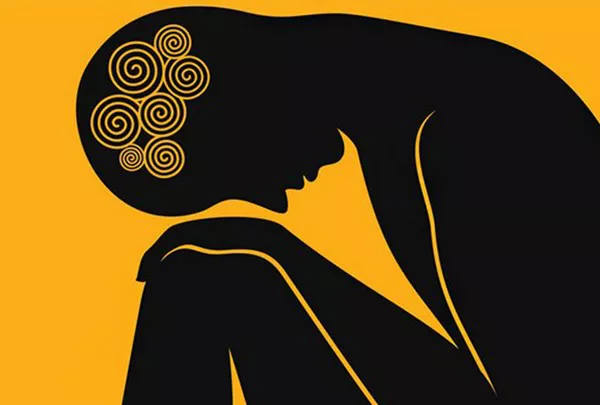Delusions, defined as false beliefs that persist despite evidence to the contrary, are a hallmark symptom of various mental illnesses. Understanding the connection between mental disorders and the emergence of delusions is crucial for both individuals experiencing these symptoms and the professionals dedicated to their care. In this comprehensive exploration, we delve into the intricate landscape of mental illnesses associated with delusions, unraveling the underlying causes, and shedding light on the complex interplay of factors that contribute to these cognitive distortions.
5 Mental Illnesses That Can Lead to Delusions
1. Schizophrenia and Delusional Disorders
Schizophrenia: Schizophrenia, a severe and chronic mental disorder, is often characterized by a range of symptoms, with delusions being a prominent feature. Delusions in schizophrenia can take various forms, such as paranoid delusions, where individuals believe they are being persecuted, and grandiose delusions, involving an inflated sense of self-importance. The exact cause of schizophrenia remains elusive, but a combination of genetic, biological, and environmental factors is believed to contribute to its onset.
Delusional Disorder: Delusional disorder is a specific mental health condition where individuals experience persistent delusions without the wide array of symptoms seen in schizophrenia. These delusions can be bizarre or non-bizarre, with themes ranging from persecutory beliefs to erotomanic delusions, where individuals falsely believe someone is in love with them. Delusional disorder highlights the specificity of delusions as a primary symptom, distinct from other aspects of cognitive functioning.
See Also: Schizophrenia: Symptoms, Types & Impact
2. Mood Disorders and Delusions
Bipolar Disorder: Bipolar disorder, characterized by mood swings between manic and depressive episodes, may involve the occurrence of delusions during manic states. Individuals in a manic phase may experience delusions of grandeur, exhibiting an exaggerated sense of their abilities or importance. The interplay between mood elevation and distorted thinking contributes to the emergence of these delusions.
Major Depressive Disorder with Psychotic Features: In some cases, severe depressive episodes can be accompanied by psychotic features, including delusions. Individuals with major depressive disorder may experience delusions with themes of guilt, nihilism, or personal inadequacy. The presence of psychosis in depression adds layers of complexity to the diagnosis and treatment of these individuals.
3. Psychotic Disorders and Delusions
Brief Psychotic Disorder: Brief psychotic disorder is characterized by the sudden onset of psychotic symptoms, including delusions, typically lasting less than a month. Stressors or traumatic events often precede the onset of this disorder. Delusions in brief psychotic disorder can be diverse, reflecting the individual’s unique psychological response to stress.
Substance-Induced Psychotic Disorder: Substance use, abuse, or withdrawal can induce psychotic symptoms, including delusions. Various substances, such as hallucinogens, stimulants, or even alcohol, can contribute to the temporary alteration of cognitive processes, leading to the emergence of delusional thinking.
4. Neurocognitive Disorders and Delusions
Alzheimer’s Disease: Neurocognitive disorders, particularly Alzheimer’s disease, may lead to the development of delusions as cognitive decline progresses. Individuals with Alzheimer’s may experience delusions related to their surroundings, identity, or the presence of imagined events. The neuropathological changes in the brain contribute to the distortion of reality.
Parkinson’s Disease Psychosis: Parkinson’s disease, primarily recognized for its impact on motor function, can also give rise to psychotic symptoms, including delusions. These delusions often involve misinterpretations of the environment or the actions of others and can significantly affect the individual’s quality of life.
5. Trauma-Related Disorders and Delusions
Post-Traumatic Stress Disorder (PTSD): Individuals with post-traumatic stress disorder may experience trauma-related delusions as part of their overall symptomatology. These delusions may revolve around themes related to the traumatic event, such as persistent feelings of threat or a distorted sense of time.
Dissociative Identity Disorder (DID): Dissociative identity disorder, characterized by the presence of two or more distinct identity states, may involve delusions experienced by different identity states. These delusions can vary among the different personalities within the individual.
Contributing Factors to Delusions
Neurotransmitter Imbalance: The role of neurotransmitters, such as dopamine and serotonin, in the brain is integral to understanding the development of delusions. Imbalances in these neurotransmitters, particularly an excess of dopamine, are implicated in various mental disorders associated with delusions.
Genetic Predisposition: Genetic factors contribute to an individual’s vulnerability to mental illnesses, including those involving delusions. A family history of schizophrenia, bipolar disorder, or other psychiatric conditions may increase the likelihood of developing similar symptoms.
Environmental Stressors: Environmental stressors, such as trauma, abuse, or significant life changes, can act as triggers for the onset of delusions. The interplay between genetic predisposition and environmental factors shapes an individual’s susceptibility to mental disorders with delusional features.
Cognitive Distortions: Cognitive distortions, pervasive patterns of biased thinking, play a significant role in the development and maintenance of delusions. Addressing these distorted thought processes is a key aspect of therapeutic interventions aimed at alleviating delusional symptoms.
Conclusion
Delusions, as manifestations of distorted beliefs, are complex symptoms that arise in the context of various mental disorders. Understanding the specific mental illnesses associated with delusions provides a foundation for targeted assessment, diagnosis, and treatment. The interplay of biological, environmental, and cognitive factors contributes to the emergence of delusional thinking, making a multidimensional approach essential for comprehensive mental health care. As research advances, and our understanding of the intricate workings of the brain deepens, the hope is to refine interventions and support systems for individuals navigating the challenging terrain of mental illnesses characterized by delusions.


